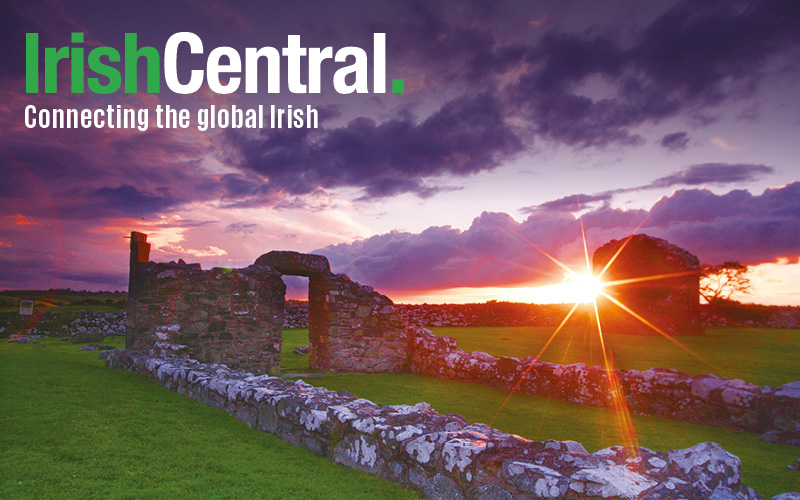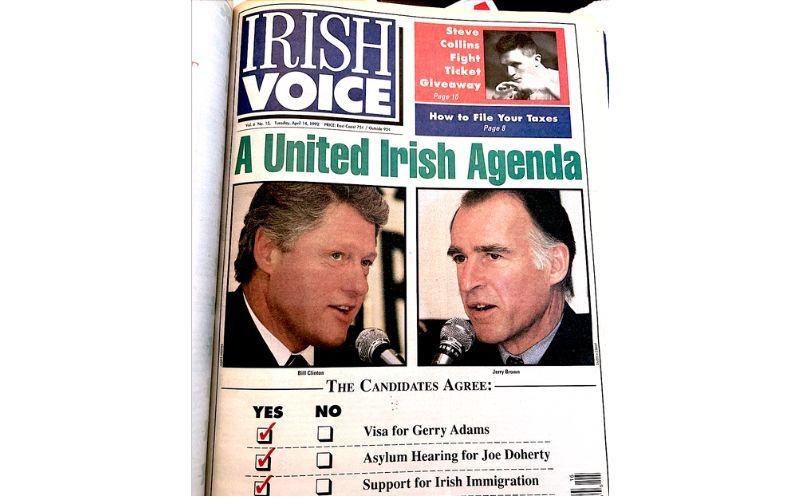Ireland will make history in May 2015 when it becomes the first country to hold a referendum on allowing gay marriage.
While other countries have legislated for it – or in the case of the U.S. the courts have found in favor of it – no country has ever held a referendum until Ireland decided to do so.
The stakes are very high, as a yes vote would have a profound impact far beyond Ireland’s shores if the historically conservative and Catholic country voted for it.
It certainly seems a yes vote is very likely. An opinion poll showed 76 percent in favor, but that may be a very soft vote says Tiernan Brady, the policy director of GLEN, the Gay and Lesbian Equality Network who is in New York this week.
He warns of deep complacency on the yes side and the impact that foreign money, especially from America, could have.
The pro-gay marriage side believes that U.S. conservative groups will seek to draw a line in the sand and think that if they can stop gay marriage in Ireland, it would have a huge impact.
“Our belief is that there will be major U.S. money involved,” says Brady, a former elected councilor in Donegal who now runs GLEN’s policy side full time. “This is a critical vote for them.”
GLEN was funded by Chuck Feeney’s Atlantic Philanthropies back when gay issues were completely under the radar in Ireland. The Irish American billionaire who gave all his money away saw the group as standing up for human rights, an issue dear to his own heart whether it was Northern Ireland Nationalists or LGBT men and women.
Brady pays a fulsome tribute to the anonymous Feeney. “He made it possible for us to exist and create the network,” he says.
The church in Ireland, of course, will oppose the referendum yes vote with might and main, but it is a much-diminished institution, weakened severely by its own scandals.
There are a group of Catholic writers in major publications who will also oppose the referendum, says Brady, and they will have an impact.
“We are looking at the 76 percent as a very soft figure at this point,” he says.” There has been no campaigning yet and that will tell a lot.”
The American money could come pouring in too. There was major American cash involved in a recent vote in Uganda to criminalize homosexuality.
An American group called Exodus International lobbied hard for the bill, which called for life imprisonment for gays (it was originally a death penalty offense). The bill passed and was signed into law.
Civil partnerships came into law in January 2011 in Ireland, but the provisions fall far short of marriage conditions.
Brady says the vote will depend heavily on people drawing from their own experience of knowing gay people, whether co-workers, family or friends.
“It is very hard to oppose when you know LGBT people,” Brady says, “and the polls bear that out.”
Brady says Irish emigrants in America who support gay marriage should be encouraged to call their family members back in Ireland to support the yes vote. It is a question of human and civil rights he believes, one whose time has come.
“A yes vote would inspire people across the world,” Brady feels. “Ireland would be seen to have played a huge part in ending discrimination."




Comments